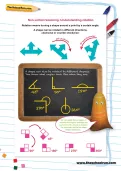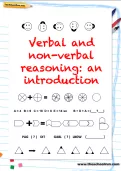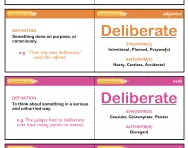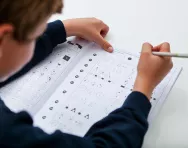Important update from TheSchoolRun
For the past 13 years, TheSchoolRun has been run by a small team of mums working from home, dedicated to providing quality educational resources to primary school parents. Unfortunately, rising supplier costs and falling revenue have made it impossible for us to continue operating, and we’ve had to make the difficult decision to close. The good news: We’ve arranged for another educational provider to take over many of our resources. These will be hosted on a new portal, where the content will be updated and expanded to support your child’s learning.
What this means for subscribers:
- Your subscription is still active, and for now, you can keep using the website as normal — just log in with your usual details to access all our articles and resources*.
- In a few months, all resources will move to the new portal. You’ll continue to have access there until your subscription ends. We’ll send you full details nearer the time.
- As a thank you for your support, we’ll also be sending you 16 primary school eBooks (worth £108.84) to download and keep.
A few changes to be aware of:
- The Learning Journey weekly email has ended, but your child’s plan will still be updated on your dashboard each Monday. Just log in to see the recommended worksheets.
- The 11+ weekly emails have now ended. We sent you all the remaining emails in the series at the end of March — please check your inbox (and spam folder) if you haven’t seen them. You can also follow the full programme here: 11+ Learning Journey.
If you have any questions, please contact us at [email protected]. Thank you for being part of our journey it’s been a privilege to support your family’s learning.
*If you need to reset your password, it will still work as usual. Please check your spam folder if the reset email doesn’t appear in your inbox.
DIY 11+ tutoring: the parents' guide

If you're considering tutoring your child but worried it's too late, TheSchoolRun has a special DIY 11+ summer programme to help children get up-to-speed and ready for the 11+ exams in September.
DIY 11+ tutoring: the pros and cons
The first positive of DIY tutoring is that it will save you a lot of money! Parents who fork out for a tutor for the 11+ for their child can end up paying hundreds if not thousands of pounds for the privilege. You might still have to pay for some 11+ practice papers and revision books, but that is nothing compared to the long-term cost of a private tutor.
The second positive is that you will (hopefully) get closer to your child through this journey and all the time and effort you both put in will be a rewarding experience.
You'll also improve your own English and maths skills and develop an understanding of non-verbal reasoning puzzles.


Prepare For The 11+ Exam
- Essential English and maths skills
- Verbal and non-verbal reasoning questions
- Reading comprehension & CLOZE tess
On the negative side being your child's 11+ tutor can be quite stressful, especially if your child is strong-willed and is very resistant to doing schoolwork with you (though they'd be beautifully behaved for a tutor!). Obviously it will also mean that both of you have to miss out on doing other things which you'd no doubt prefer, which can be frustrating, but in the end it will hopefully be worth it.
What skills do you need to do 11+ tutoring at home?
What do you need to tutor your own child, apart from a vast amount of patience? The main thing is determination; by that I mean being able to stick at the commitment to tutor your child at home yourself because there will be plenty of distractions, interruptions, tantrums, tears and arguments along the way.
You also need to be aware that all this effort on your part, and your child's, may be in vain. Are you prepared for them to not pass the exam? If that were to happen, would you blame yourself or feel that you hadn't given them the best opportunity to succeed by not employing a tutor? Not passing an exam you've worked hard for is obviously disappointing, but the time and effort put in with your child would mean that they would have learned many important concepts to help them in later life (plus the time spent together working for a common goal is definitely bonding).
Prepared for the failure as well as the success? Go for it, but be disciplined. Preparing for the 11+ is something that requires commitment from both you and your child.
How qualified do parents have to be to mark 11+ work / offer useful feedback?
What do you do if your child is finding a particular concept hard and you don't know the answer? This is a common scenario which happens often when a parent is tutoring their own child.
First of all, if you don't know how to work out the answer to a particular problem come clean with your child and say so. There is no shame in admitting that you don't know, especially with some of those difficult non-verbal reasoning questions! Finding out the answer together will give both you and your child a great sense of satisfaction.
If you're using a structured 11+ learning programme like TheSchoolRun's 11+ Learning Journey the answer will be provided for you, as well as lots of links to further information. Most practice materials also have worked-out answers, and it's definitely advisable to look through any resources you're planning to buy to check that the answers are provided.
Will one-on-one tutoring sessions work?
Try it! The sooner you start doing 11+ practice sessions at the beginning of Year 5, the sooner your child should settle into a routine and start some serious learning. Rather than calling it a lesson, which may be off putting for your child, you could try calling it “11+ time”, “study time” or “learning time”. It is important to make it clear to your child that this is a formal, set time when they must settle down to work for an hour or so and concentrate on their learning.
You also need to find a space where you won't be disturbed by other children, pets, cooking or the TV. If you're going to be at home, you'll need a table set up for your child to do their work on and it's best to keep distractions like the radio or noisy domestic appliances turned off. Avoid using your child's bedroom as that is their space and where they relax, not study!
Alternatively, could you go to your local library at the same time every week and work there?
Weekly 11+ practice: how long should each session be?
Aim for an hour-long session, but if your child's concentration span (and your patience!) cannot last that long, try half an hour to begin with and then build it up.
You don't have to stick to an hour religiously though; try to be aware of how your child is coping with each session. If they are starting to wilt, don't be afraid to call it a day. Or on the other hand if they seem to be working well, there is no harm going over the hour limit. You as a parent know your child best of all, so just be aware of how your child is coping. Some books have charts for you to show your child’s marks each week, which can help you see their progress and encourage you both to keep going.
A good idea is to have a calendar to show what days / times thepractice sessions are going to take place, as well as important dates in the 11+ year, such as when the application form has to be in, or when a grammar school’s open evening is taking place.
Be prepared to compromise on the timing of practice sessions on special occasions or during holidays, but make sure you make up the practice time and treat each session as a fixed appointment, as important as if you were paying for it.
Don't be terrified by other parents' tales of their brilliant tutors!
If you're DIY tutoring, be prepared for other parents to suggest that you're very brave... while implying that they would never allow their child to be prepared for the 11+ by anyone other than a brilliant tutor!
Take all descriptions of amazing tutors with a pinch of salt. Parents who are considering home tutoring their child are often put off by tales from other parents about how fantastic their child's tutor is, how brainy they are, how long their waiting list is and how many thousands of children they've helped pass the test. Hmmmm... Obviously a tutor will be a qualified teacher and be very familiar with the format and requirements of the 11+, but there's a wealth of resources available to help DIY parent-tutors and the 11+ is an exam for ten- and eleven-year-olds, not university graduates! As a parent, you have a huge advantage: you know your child inside out and understand all their strengths and weaknesses and how best to deal with them, and no one wants them to learn and succeed as much as you do.
Don't feel daunted – you're the very best tutor your child could have. Enjoy the journey!
Mark Chatterton is the author of The 11+ A Practical Guide For Parents and webmaster of the 11 Plus Website.







